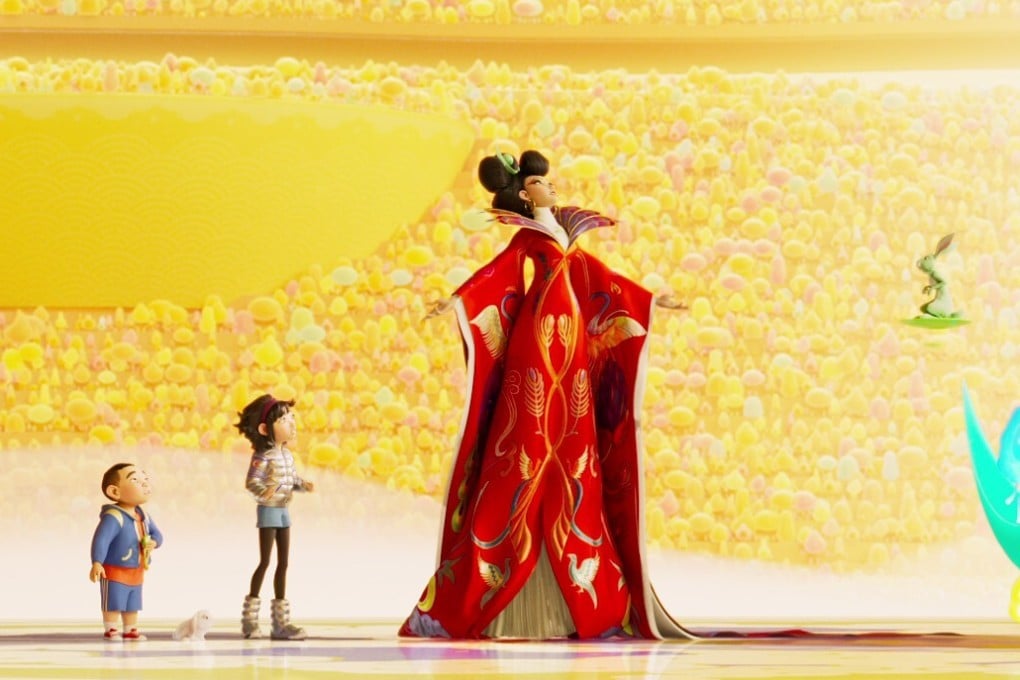Over the Moon: Netflix animated feature brings traditional Chinese story to audiences both at home and abroad
- Sandra Oh, John Cho and Ken Jeong are among the English voice cast for Netflix animation, with Li Dan and Chang Dichen among the Chinese voice actors
- The script’s Chinese translation was a year-long process, unusually, with scenes constantly tested and wording refined to meet the home audience’s expectations

A young girl grieving her lost mother seeks help from the moon goddess Chang’e in Over the Moon, a modern-day interpretation of tales familiar to children in Chinese societies. When Netflix released the animated musical feature on Friday, it offered versions in over 30 languages, each with different voice casts.
A co-production of China’s Pearl Studio and Netflix, the movie is notable for being that rare feature-length English-language animation with an all-Asian cast. The English voice actors includes stars such as Sandra Oh, Ken Jeong, and John Cho, with leads Cathy Ang as young Fei Fei and Tony Award-winning Phillipa Soo as the moon goddess Chang’e.
“Over the Moon was actually born at Pearl Studio,” says Peilin Chou, now a producer at Netflix, and at the time CCO of Pearl. “At our annual Brain Trust summit, executive producer Janet Yang pitched the idea of a modern-day retelling of the Chang’e myth, told through the eyes of a little girl named Fei Fei.”
Finding Asian-themed projects for the global stage is part of the Chinese studio’s mission. For Chou, Fei Fei’s quest was an entry point to bring viewers into a world they may not know much about. Of course, Chinese audiences are already familiar with the stories surrounding Chang’e.
“They obviously know the myths,” Chou agrees. “I think we have interpreted her in a way that is respectful in terms of authenticity, but also quite fresh and modern.